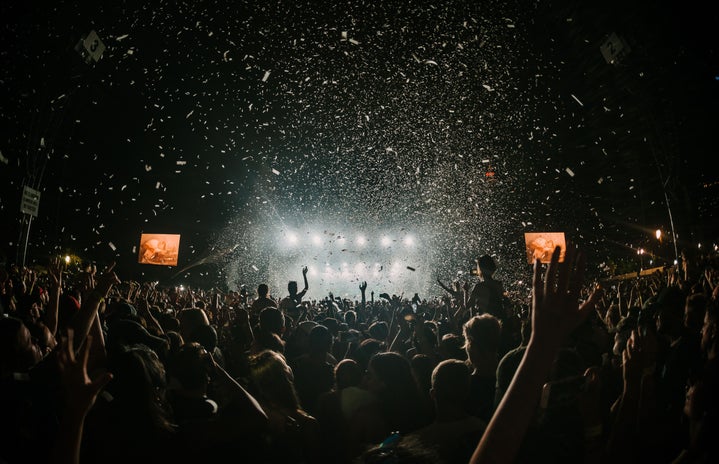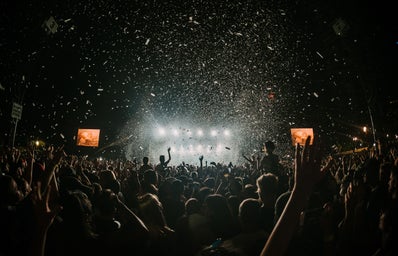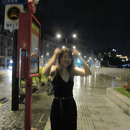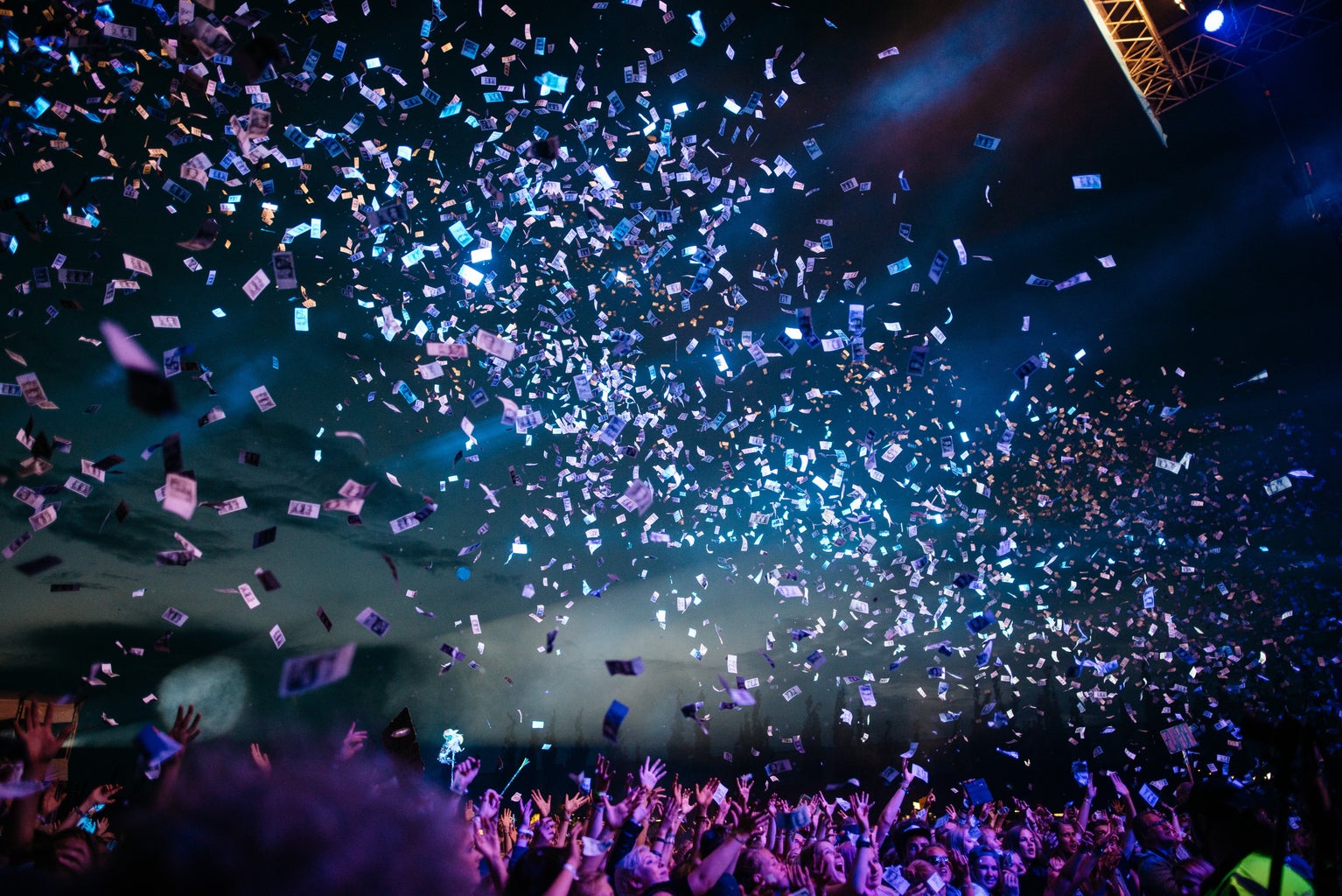“Concerts”: A music performance given in public, typically by several performers or of several compositions.
While live music sung by the artist is usually the main emphasis of a concert, it is only one of the characteristics that contribute to a K-pop concert. With a stadium illuminated by Bluetooth-controlled light sticks* (specific to that group!), fans’ aesthetic outfits that reflect the group’s persona, and organized signs that are plastered with inside jokes, it’s a celebration of the fandom, as parasocial relationships are temporarily broken down by this fever-dream.
*Often includes the fandom color, and group logo and is symbolic of the fandom and the artist’s unity. Each group has a specific design and even name for their light stick, and it is the ultimate K-pop merchandise to show your status as a committed fan.
As someone attending their first K-pop concert, my more experienced friends immediately bombarded me with questions right after I purchased my tickets. “Concert fit,” “light-stick,” “fan-chants” and “fan signs” were promptly typed into my notes app as I set off on my online-shopping quest. I had always known that a K-pop concert would be different, or usually more “intense” than a more conventional concert. Yet, as I ordered tickets months ago, I felt so disconnected from the entire ordeal that the reality of it did not register until I stared at my “to-do” list.
It seemed intimidating to begin with: my research on TikTok led to the conclusion that outfits usually corresponded to a specific music video or album “aesthetic” (green and black for the one I attended), and people tended to decorate their light sticks with fandom specific accessories/ stickers as well. As I slowly ticked items off my list, it still felt fictional; the idols were unrealistic after all — their personalities were filtered, and their appearances in front of fans were always heavily scrutinized by professional stylists. Most importantly, I simply could not fathom that I would be seeing these “characters” in real-life.
Fast-forward to concert day, and it was fictional. Starting with people complimenting my outfit as I walked to the area, amicability overflowed the entire area that was now a celebration of K-pop — a hobby that bonds all of us together. Conversation was easy to make: inside jokes were immediately understood as we chattered on excitedly about sharing this unique experience together. And when the K-pop idols finally came out to perform, light sticks swayed in sync as people chanted the lyrics of a foreign language perfectly. The idols interacted with fans as much as they could, responding to questions on signs, posing as people took photos, and even playing rock-paper-scissors with fans mid-performance — it was very much a fan-centered experience. Games that happened during the intermission were reminiscent of a “kiss-cam”: fans (who stood up to show willing participation) were picked out of the audience to dance to the group’s songs, and even if some were not as familiar with the choreography, the entire stadium cheered them on.
As the concert ended, I had come to realize what made K-pop concerts so addicting and “different.” The sense of unity and community made everyone feel at home; here, people were able to express themselves freely with elaborate costumes and proudly claim their identities as K-pop fans. It was the physical manifestation of “fandom,” a usually online concept. Although temporary, the belonging felt by all was sincere and real, and that was the key to its addiction.



